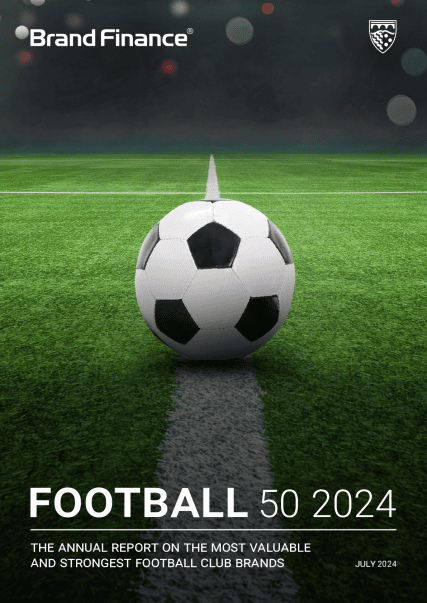This article was originally published in the Brand Finance Football 50 Report.
Sports Risk Intelligence (SRI) is a pioneering integrity platform designed to empower sports organisations in managing reputation and financial risks with precision. Harnessing the power of advanced AI and machine learning, SRI emerges as the foremost provider of comprehensive automated background checks, real-time monitoring, and alerting systems, safeguarding brand value, investments, and stakeholder trust.
Interview with Joel Attwal

Co-Founder and CEO,
SRI – Sports Risk
Intelligence
How did you identify the problem with existing risk management in sports?
In early 2023, I began noticing a troubling trend: high-profile athletes facing allegations on social media, leading to significant negative repercussions. My background in financial services, specifically in risk management and compliance, made me wonder about the potential fallout from these incidents. Could these online controversies affect athlete transfers between clubs? More importantly, could we identify these issues early and turn them into opportunities for better decision-making and support for the athletes involved?
Driven by these questions, I embarked on six months of intensive research. It quickly became clear that the screening technologies prevalent in financial services were virtually unknown in the sports industry. This gap presented a tremendous opportunity. My mission crystallised: to transform the sports industry by integrating the robust risk management and compliance strategies from the financial world, while ensuring cost-efficiency and added value. Thus, the concept of SRI was born.
What are the key risks faced?
Sports organisations face a plethora of reputational risks that can drastically impact their brand value, fan base, and financial health. These risks range from player misconduct and legal issues to financial mismanagement, doping scandals, and inappropriate social media behaviour.
The consequences can be dire: loss of sponsorship deals, diminished fan support, legal battles, and a tarnished public image. In extreme cases, these events can threaten the very stability and viability of the organisation.
What made you think the current approach could be disrupted?
The traditional approach relied heavily on consultancies, agencies, and Google alerts. It was clear to me that a more systematic, automated solution was needed. I assembled a working group of industry leaders and executives to validate and refine my vision. Their feedback was invaluable, highlighting pain points and shaping the development of a prototype for our beta system.
Then, a serendipitous moment arrived: King Charles announced the establishment of a new regulator for football. It felt like the stars were aligning, mirroring the regulatory environment in financial institutions. This further reinforced my belief in the potential of SRI.
How do you apply technology to build a solution?
With the latest advancements in AI and machine learning, we developed an innovative, all-encompassing system. SRI's technology not only pre-vets athletes but also provides real-time crisis detection and management. This ensures that organisations can swiftly address emerging issues, protecting their brand image and entering crisis situations well-prepared.
Our platform is designed to be user-friendly and customisable, allowing sports organisations to tailor parameters to their specific needs. This flexibility is crucial, enabling SRI to support various operational tasks, from transfer market activities to ongoing recruitment and overall risk management.
What kinds of risk areas are we looking at?
Effective risk management and integrity department in sports involves a collaborative effort among various stakeholders:
• Players: As the public face of the organisation, their behaviour and performance are under constant scrutiny. Ensuring they adhere to professional standards is vital.
• Club Executive Management: Responsible for governance and strategic decisions, management must establish robust risk mitigation frameworks.
• Finance Teams: Financial stability is crucial, and vigilance against economic risks is essential.
• Legal Departments: These teams ensure regulatory compliance and manage legal ramifications.
• Fans: Maintaining a positive public image is key to retaining fan loyalty and support.
Mitigating risks can clearly reduce unwanted costs, but how can it create value for users?
A formalized tech driven solution like SRI can create substantial value for sports organisations and their affiliates:
• Sponsors: Robust risk management enhances appeal and retention of sponsors.
• Financial Stability: Better-vetted sponsors lead to favourable financial outcomes.
• Owners/Transactions: Thorough assessment ensures accurate valuation and smooth negotiations in mergers and acquisitions.
• Player Associations: Protecting reputations fosters a secure and supportive environment for athletes.
• Regulatory Compliance: SRI helps demonstrate commitment to high standards and integrity, crucial in an era of tightening regulations.
In conclusion, SRI offers a sophisticated and proactive solution to the reputational and financial challenges faced by sports organisations.
By leveraging advanced technology, experts across the domains of sports, SRI not only protects brand value but also enhances stakeholder trust and generates long-term value across the sports industry ecosystem – a transformation that is long overdue and timely.

